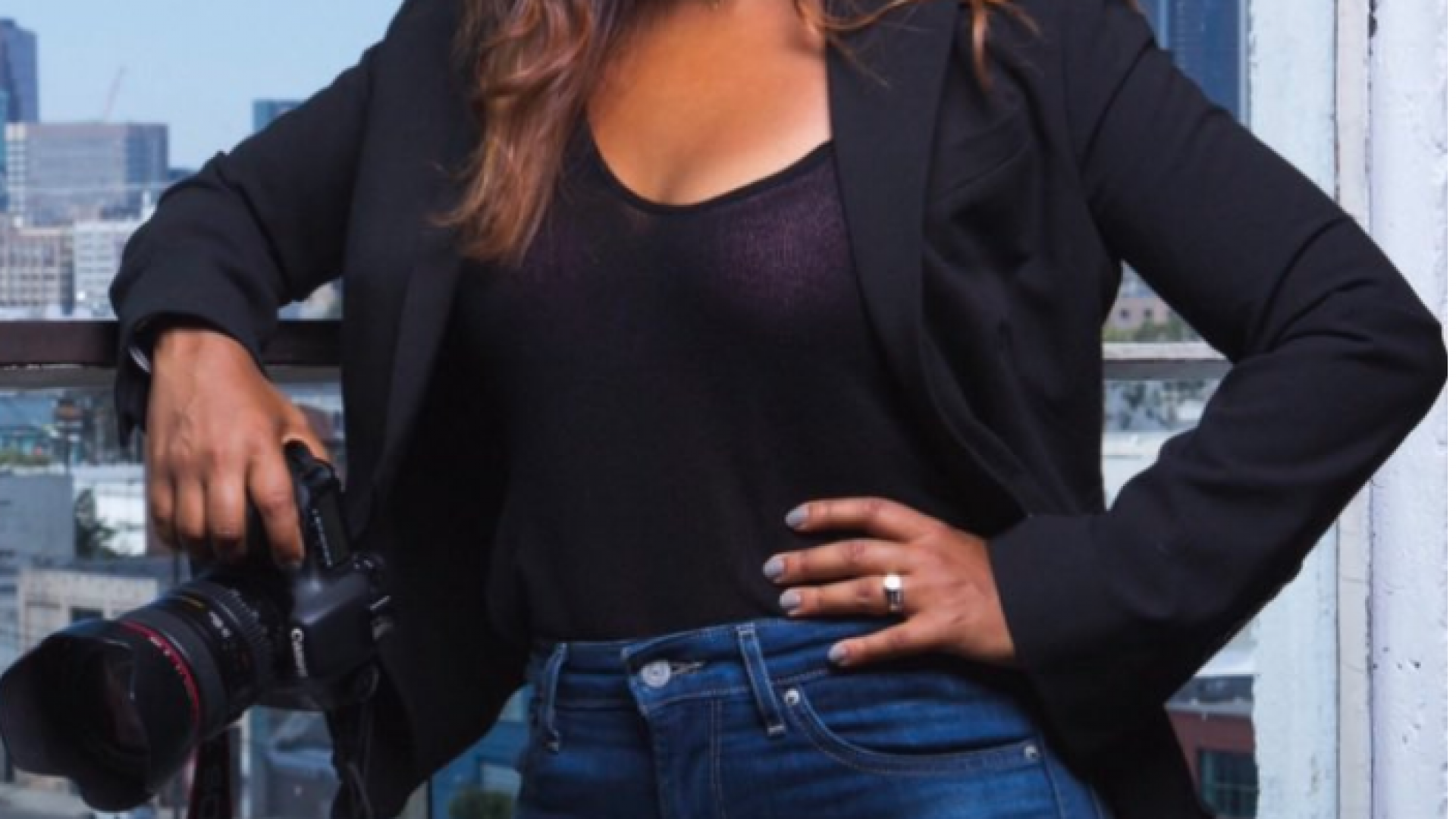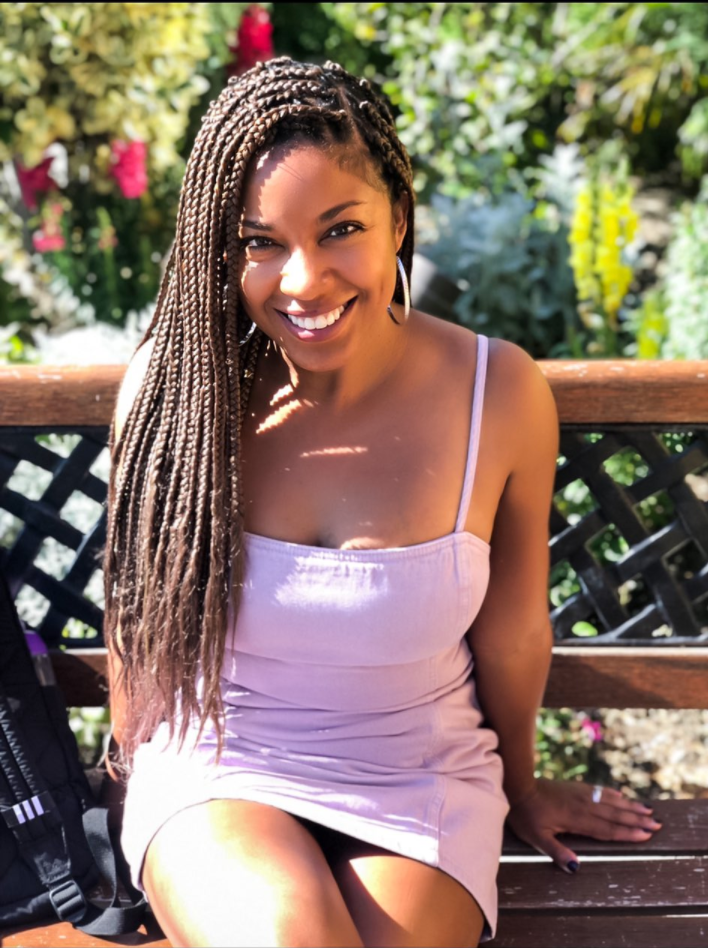
Fans were pleasantly surprised to see Reagan Gomez as Chantal, one of Nova’s lovers, on Queen Sugar back in 2016. Of course, those who recall Gomez as teenage Zaria on Robert Townsend’s ‘90s sitcom, The Parent Hood or recognize her as the voice of Roberta Tubbs on The Cleveland Show were a bit shocked. But Gomez is a fully grown woman with a husband and kids who has completely leaning into her power as a content creator. These days she’s actually more at home behind the camera.

“I have been a content creator for about the last 12 years,” Gomez tells ESSENCE. “I’ve written and directed original web series for my YouTube channel and my Vimeo [account] for years now. . . . My last project [Surviving . . .] was a horror a zombie apocalypse web series starring two Black sisters trying to stay alive in the midst of a zombie apocalypse. And that show was nominated for a Gotham award in 2016, for best original show, short form.”
Almost Home, the first web series Gomez created back in 2013, follows a young woman working as a stylist who relocated from Chicago to LA with her younger brother after their mother’s passing. When now Oscar winner Matthew A. Cherry was unable to direct the show’s second season, Gomez took over the director’s chair and has not stop making those moves. In addition to following up Almost Home with Surviving, Gomez is excitedly prepping to shoot Charcuterie, her first feature-length film, in 2021.
A horror film set in West Philly, Charcuterie stars Kenni, a young Black woman who suspects that a new pair of gentrifying hipsters are “cannibalizing more than the culture” with their artisanal deli. Charcuterie is written by Chris Courtney Martin, the cohost of the Afro Horror Podcast, which celebrates the African American experience in horror film. The two women, who both grew up in Philly, met back in 2017 at a brunch for Black women organized by journalist Kellee Terrell.
“Writing is really important to me,” Gomez explains. “I’ve been an actress for so long, so I’m used to reading those scripts. I’m used to having to audition for the Black girl who, you know, is dying in five minutes, or the sassy friend. I started writing to create content for roles that I could not audition for, and stories that I could not audition for. So this part of the process, the other side of the camera, is really just a godsend to me. And I think with everything that’s happening in our country and in the world, we need stories like this to uplift our people, and especially Black women and marginalized women.
“We need these stories more now than ever. And for me, horror has always been a very feminist genre. There were never really a lot of Black women [in it], but, for women, this is the genre where they can kill the monster,” she continues. “This is the genre where you better not be [the one] that’s falling running away from the monster in the woods because you will die. You have to be the one that outsmarts everybody, including the monster, to survive. So horror is a really feminist genre for me.”
It’s one of the reasons she’s looking so forward to Charcuterie. “I’m so excited to bring this film to everybody. I’m so excited to tell this story,” says Gomez. “We’re in the casting phase now. And, you know, as someone who’s been an actress in the business in front of the camera for 26 years, I love this part of the business, the casting process and being a producer.”
Horror has always been a very feminist genre. There were never really a lot of Black women [in it], but, for women, this is the genre where they can kill the monster…you have to be the one that outsmarts everybody, including the monster, to survive.
Reagan Gomez
Gomez also sees an upside to the challenges 2020 has presented all of us. “We’re all at the point, especially in Hollywood, to really make our mark and tell the stories that we want to be told, which is kind of what Black creators have always done. But this year has really solidified it,” she says. “Like we have to be in the room, we have to be the ones writing these stories, directing these stories, producing these stories. And, especially for Black women in the space, as far as producers and directors [are concerned], the numbers are so small. If it’s about magic, or fantasy, Black woman directors are at such an embarrassing low number of the people in leadership positions to bring these films to the masses.”
For Gomez, however, that also means opportunity and she’s ready to seize it. “I just turned 40 this year. So I’m so excited about my 40s,” she says. “My 30s were [about] me finally accepting that this may be another chapter of my calling. This is the flip side to being in front of the camera. And I was successful doing that in my 30s. But now it’s time to get to the big screen.”




